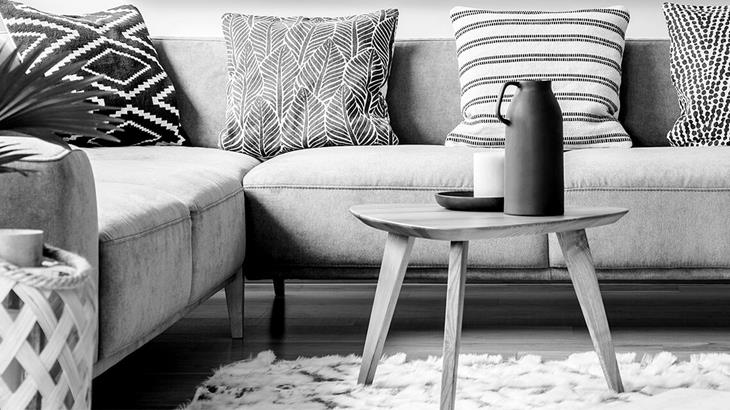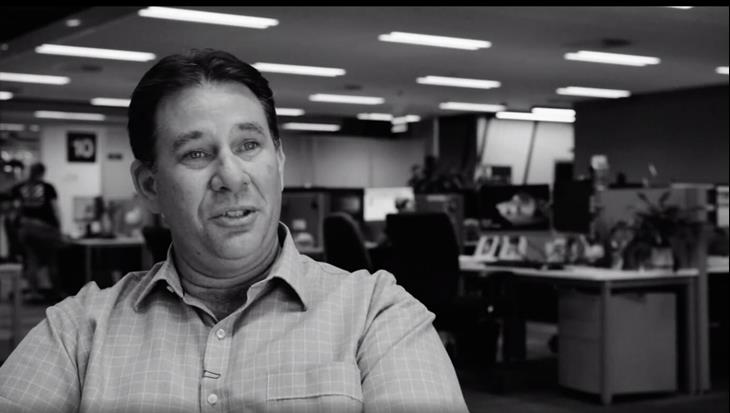Think about all the things you own around your home. You’ve spent good money on them and they mean a lot to you. So how would you feel about having to replace them all from scratch?
Home and contents insurance is crucial for any Australian seeking the feeling of confidence that comes from knowing they’re protected. A good contents insurance policy like Youi’s can protect homeowners and tenants from all kinds of mishaps and disasters - whether they’re small events like broken windows or major events like bushfires, floods and other natural disasters.
The fact is that while policies might seem similar, not all home and contents insurance cover is created equal. Many Australians make mistakes when it comes to choosing and maintaining their policies. Here’s a look at 10 common mistakes people make when purchasing their home contents insurance:
1. Underinsuring
This is the most common mistake that people make, failing to insure the contents of their homes for a sufficient amount should they need to replace them. While many everyday items will decrease in value over time, some things you own will actually increase in value. If you own fine art, jewellery or antiques, underinsuring your possessions could put you in a risky situation if they’re lost or stolen.
An increase in value for these items can be great if you decide to sell one day, but it can become a nightmare if something goes wrong and your coverage hasn’t kept pace with their value. Even standard possessions can be affected. If you suffer a house fire and hadn’t insured your home’s contents according to their full value, your claim may not cover the cost to replace them all to your standards.
2. Listening to Family and Friends, Instead of Your Insurer
Mum and Dad have given you loads of good advice over the years, but listening to them may be a mistake when it comes to insurance.
They’re entitled to their opinion, but it’s also important to do your own research and take a variety of opinions into consideration. Insurance policies come in many shapes and sizes, making it possible to find one that better suits your needs – everyone’s situation will be slightly different so it makes sense to take the time and work through what each policy would mean to you. Reading the PDS of the policy you’re considering is a good way to learn what’s covered and what’s not.
Jumping online is another great way to compare the different levels of cover. Start by walking around your house and adding up approximately what you think each item is worth. It’s a good idea to err on the side of caution and give yourself a bit of a buffer as to what the total value would be.
3. Forgetting to List Work Equipment
When it comes to what they own, many people fail to connect their workplace to their home. That laptop you bought for work or those tools you use on the building site may have been purchased for use mainly outside the home. But if you bring them home every night, they should be listed on your policy. Doing so, brings total peace of mind.
If you’re struggling to remember everything you can (and should) insure, check out our fact sheets to help jog your memory. These fact sheets don’t cover every scenario or item you could possibly list, but they will help you get started.
4. Miscommunication
It’s common for families to split the admin duties when it comes to managing household paperwork. That can become a problem if your contents policy isn’t updated when it should be. Miscommunication can happen easily, especially between busy family members. But when it’s something as important as insurance cover, it can be a costly mistake.
Some families task just one person with maintaining the contents insurance policy, while others collaborate. Whatever system works for you and your family is the best one, as long as this critical need is addressed. It’s a good idea to reassess your contents cover whenever you purchase a new item that would be covered. This ensures your policy is kept up to date, and will limit the possibility of getting a shock should you ever need to make a claim.
5. Only Focusing on Price
We get it. Money matters.
But it shouldn’t be the only thing you consider when you’re weighing up your cover. Your premium price won’t matter one bit if your insurer doesn’t pay out in the event of a covered disaster. Again, making yourself familiar with the PDS of the cover is a good way to know what’s covered and what’s not.
Before you begin the quoting process, take a good look at all of your possessions and their value. If they were all damaged, how much would it cost to replace them? Keep that figure in mind when you evaluate not just possible premiums, but also the limits and excesses for your different cover options. For example, some insurers require you to list any item of jewellery over a certain limit – make sure you know the differences between insurers and what it would mean for your cover.
6. Not Reading the Fine Print or PDS
All insurance covers - including contents cover from Youi - come with various detail about when they’ll pay out claims. There’s also details about how much they’ll pay for each covered incident.
For example, most insurers cover water damage but the details can be very different for each. If all you read is that a potential cover pays out for water damage, but don’t note in the PDS that the cover does not pay for flood, you could wind up paying for cover that won’t pay out when you need it. Youi Contents Insurance covers for loss or damage caused by flood (with certain limits).
That means the covering of normally dry land by water that has escaped or been released from the normal confines of a lake, river, creek, reservoir, canal, dam or other watercourse.
The bottom line? Make yourself familiar with the PDS, and always read the fine print.
7. Forgetting Upgrades
Many Australians renovate their homes. Between 2016-2017 alone, 62% of Australians undertook renovation work of some kind. If you’ve put in a media room and filled it with the latest tech, you’ll need to update your Contents policy to reflect the extra things you now own.
The same applies to gardening equipment. If you’ve added a shed and now have all kinds of power gardening tools in there, you’ll need to add those to your contents policy to make sure they’re covered.
8. Not Being Covered for items you take away from the Home
There are some things that leave the house more often. Sunglasses, digital cameras, laptops for example. It’s possible to have these things covered even when they’re away from the house to give you an extra level of comfort.
With Youi, you have the option to include Contents Accidental Loss or Damage cover which covers your contents anywhere you take them. T&C’s and limits apply.
9. Failing to Store Really Expensive Goods Offsite
Contents policies often have a limit on the amount of certain items covered.
The cover limit on your policy will vary based upon the type of assets you’re insuring and their value. Jewellery, collections of memorabilia, and similar goods typically have a ‘cut off’ point for insurance purposes.
Special insurance may make sense for larger items, but for goods that are small and portable - especially those you don’t need to use very often - storing them offsite in a vault may be best. No solution is ever 100% safe, but a steel security box offsite is a good bet for a lot of valuable items.
10. Thinking 'It Will Never Happen to Me’
Imagining a disaster occurring in your home is something most of us would prefer not to think about. But a disaster at home that isn’t covered by your insurance policy can really cause mayhem to your financial position.
Don’t assume disastrous events won’t happen to you. Protect yourself by planning ahead with a contents insurance policy and by making sure your cover is current and suitable to your individual needs.
Youi Contents Insurance can give you the confidence you’re after in your cover. You can check out our factsheets and PDS online or just jump on the phone and call 13 YOUI if you’ve got any questions.
One last thing, if you’ve got your car insured with Youi, you can get a 20% Discount on your contents cover. To find out more, visit youi.com.au
Product issued by Youi Pty Ltd, consult our Home PDS
at www.youi.com.au when deciding if this product is appropriate for you.




